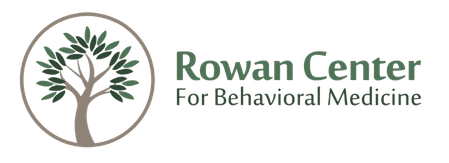Depression therapy is a type of therapy designed to help individuals suffering from clinical depression. The clinical psychologists at Rowan Center for Behavioral Medicine have the expertise to provide state-of-the-art depression therapy. We will work with you to identify the severity of your symptoms by using evidence-based measures, collaboratively set treatment goals, and develop a wellness plan to address your specific needs. We will continue to monitor progress weekly by using validated assessment tools. Patients at our center will have access to a portal account that will help them communicate with their therapist in a secure manner, allowing them to complete assessments and receive ongoing feedback between their weekly sessions. Our evidence-based practice utilizes interventions drawn from cognitive behavioral therapy, acceptance commitment therapy, mindfulness-based, and humanistic approaches.
California CBT Teletherapy Sessions Available!
You are able to have your sessions online or over the phone with our experienced CBT Therapist.
We Can Help Alleviate these Symptoms of Depression:
- Depressed mood, feeling down, or hopelessness
- Loss of interest or pleasure in doing things you used to enjoy
- Feeling tired or having little energy (fatigue)
- Feeling restless
- Insomnia, or trouble falling or staying asleep, or sleeping too much
- Changes in your appetite or weight (poor appetite or overeating)
- Feeling bad about yourself or that you are a failure or have let yourself or your family down (guilt/worthlessness)
- Trouble concentrating on things
- Thoughts that you would be better off dead or hurting yourself in some way
Types of Treatment
- Cognitive Behavioral Therapy (CBT)
- Humanistic and Existential Therapy
- Mindfulness-Based Cognitive Therapy (MBCT)
- Behavioral Activation (BA)
We will help you learn tools to combat depressive thinking and increase your quality of life. Our goal is to help you attain your highest level of health and wellness.
Frequently Asked Questions
What types of therapy are best for depression?
Cognitive Behavioral Therapy (CBT) is a type of therapy that focuses on identifying and changing negative thought patterns and behaviors that can contribute to depression. CBT also helps individuals to develop problem-solving skills and increase self-confidence.
Behavioral Activation (BA) is a type of therapy that focuses on increasing positive activities and behaviors that can help to reduce symptoms of depression. Mindfulness-Based Cognitive Therapy (MBCT) is a type of therapy that combines mindfulness practices with cognitive therapy to help individuals manage their emotions and reduce symptoms of depression.
All three of these therapies have been found to be effective in treating depression and can be used alone or in combination with other treatments.
How do you know if you should see a therapist in for depression treatment?
If you are experiencing any of the following symptoms for more than two weeks, it may be time to seek help from a therapist for depression treatment: persistent sadness or depressed mood, hopelessness, irritability, feelings of guilt or worthlessness, loss of interest or pleasure in activities, fatigue or decrease in energy, thoughts of death or suicide, difficulty concentrating, changes in appetite, restlessness or trouble sitting still, and/or insomnia or sleeping too much.
If you are having difficulty managing your symptoms, it is important to reach out to a therapist or mental health professional for help. They can provide the necessary support and resources to help you manage your depression and get back to living a healthy and fulfilling life.
How long does therapy take for depression?
The average time for psychotherapy to work for depression is said to be 3 to 6 months. However, the time frame varies from person to person.
Cognitive behavioral therapy usually lasts between 6-16 weeks. It is important to note that psychotherapy is often prescribed along with medication for people needing relief from severe depression.
Can a therapist diagnose depression?
Yes, a therapist can diagnose depression. Mental health professionals, including therapists, are trained to recognize the signs and symptoms of depression and to use diagnostic tools to make a diagnosis.
The Diagnostic and Statistical Manual of Mental Disorders (DSM) is a commonly used diagnostic tool that outlines the criteria for depression. If you are experiencing symptoms of depression, it’s important to seek the help of a qualified mental health professional who can provide an accurate diagnosis and recommend appropriate treatment.
What form of therapy is most effective for major depression?
Cognitive Behavioral Therapy (CBT) is the most effective form of therapy for major depression. CBT helps to identify and change negative thinking and behavioral patterns that can affect how a person feels.
It also helps to develop healthier coping skills and improve relationships with other people.
Additionally, it can be used in combination with medications to provide a more comprehensive treatment plan.

